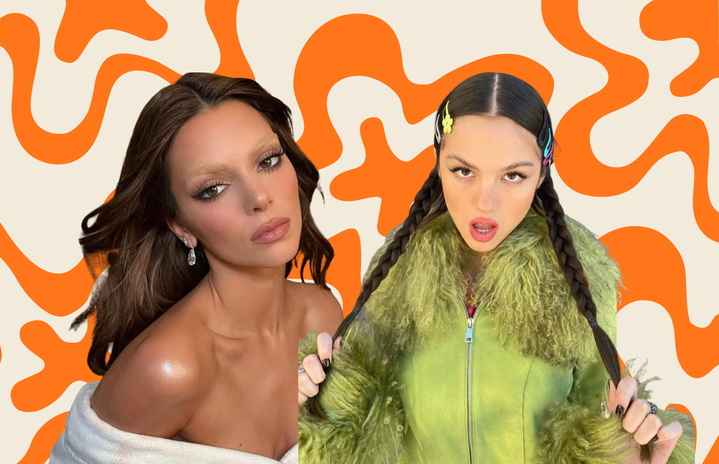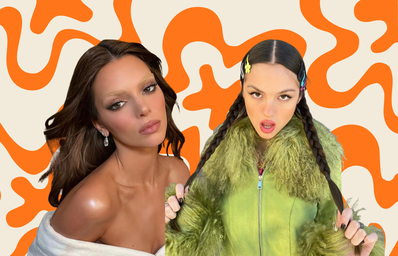Every year, in the nation’s largest, wealthiest city, elitist socialites gather. Wearing an abundance of clothing and jewelry that costs more than the homes of most people not invited, these elites are recorded and photographed while the rest of the working-class nation watches. In disgust and terror, the lower classes are forced to watch as the capitol picks children from each district to fight against each other in the hunger games.
Oh, my apologies. Did you think I was talking about the Met Gala??
The Met Gala is exactly the same, except without forcing children to fight for their lives. But does that make it any less dystopian? Hundreds of upper-class celebrities walk the steps of the gala’s red carpet every year, flaunting their wealth and privilege while BLM protestors are arrested outside of the event (2021). The Met and its attendees seem to be posters of ongoing ignorance and denial of real-world issues going on around them.
With the ever-controversial annual Met Gala coming this May, it’s important to discuss the question that should be on everyone’s mind. Is there any hope for the Met?
The History
The first Met took place in December of 1948, with tickets going for $50, and remained a logistically very different event from what we know well today until 1971. Instead, the event was a quiet dinner between upper-class elites, in different locations across New York City over the years, joining to raise funds for the Costume Institute, and celebrating the institute’s new annual exhibit. By the 1970s, with the introduction of Diana Vreeland, Vogue’s editor-in-chief at the time, as the new consultant to the Costume Institute, an array of celebrities were added to the guest list such as Jackie Kennedy Onassis, Diana Ross, Elton John, Andy Warhol, etc. as it became more of an exclusive party rather than a regular fundraiser. From then on, even as Anna Wintour came to be Vogue’s editor-in-chief in the 1990s, elites such as Princess Diana would also be in attendance. The true shift in the annual Met Gala came in the early 2000s with the rise of social media and cable television in most homes, allowing the event’s high-profile attendance to receive intense media coverage on all ends. By the 2010s, the event became known and looked forward to for its celebrity guest list that featured guests such as Beyonce, Lady Gaga, Rihanna, and Justin Bieber.
Today’s Theme and What it Means:
The theme this year is “Karl Lagerfeld: A Line of Beauty ”, in celebration of the late prolific designer’s life and works. While this may seem “iconic” for anyone who knows about Lagerfeld’s designs, it’s not so iconic for people who know about Lagerfeld’s personality. While Lagerfeld lived an amazing life and definitely provided inspiration for the fashion industry, it’s important that when we remember him, we remember all of him. Lagerfeld was known for confidently making a slew of fatphobic, misogynistic, and xenophobic remarks including but not limited to:
In Karl’s defense, many have claimed he is merely a product of the fashion industry itself. While his comments were clearly influenced by the fashion industry’s refusal to style plus-size models for decades, that does not excuse his confidence in declaring such opinions so publicly. It’s terrible to think someone who made SUCH BEAUTIFUL CLOTHES could have such ugly opinions.
And so… The Guest list:
As part of Anna Wintor’s job, she gets the privilege of deciding on the final attendance list. This means even if a fashion house buys several tables with specific guests in mind, Anna has the power to reject anyone and everyone she wants, even if the house has already paid the $275,000 for each table. In recent years, however, she has been put under extra scrutiny for allowing social media influencers to attend the event. While some influencers like Emma Chamberlain or Lisa Koshy have attended multiple Met Galas without upsetting anyone, the abundance of other influencers who have been allowed to attend has been very controversial. In allowing the attendance of James Charles, Addison Rae, and Dixie Damelio (for example), Anna has been criticized for not maintaining the event’s exclusivity. In attempts to return some of the event’s exclusivity, Anna has been reported to have a much tighter, more elite guest list in comparison to years past, keeping invitations away from certain influencers and more shockingly, the Kardashian-Jenner family. Whether the Kardashians are truly uninvited is yet to be confirmed, but one thing is for certain; Anna and others running the event want the Met to be more exclusive and therefore more prestigious. But before everyone starts cheering for this, let’s think critically about this. Do we really want this spectacle of an event to become more out of touch with reality than it already is?
While I agree that certain influencers such as James Charles never deserved to attend the event, the issue with influencers attending has never been focused on the morality of the influencers. Instead, the issue has always been focused around the idea of these influencers not being elite enough to attend, often receiving remarks of “Oh so they’re just letting anyone in now”. The root of the issue these critics have therefore is that influencers are normalizing the event, making it more attainable to its viewers. But is that so terrible?
Overall
If we’re going to watch an elite few parade around in their costumes, at least the guest list can be interesting and fun. Realistically, I want to see celebrities like Rihanna, K-Pop stars, influencers, and even the Kardashians at the event because talking about their outfits is so much more fun than discussing the shade of black of some real estate mogul’s suit. It’s the perfect way to critique them as their level of money and power should bring great results but often does not. In addition, I would also love to see relevant themes such as a Met Gala based on sustainability. However, this year’s theme of Karl Lagerfeld is just the icing on an already out-of-touch and elitist party, and I personally don’t care if people do or don’t dress on theme this year. In my mind, since influencers and international artists receive more views on their content than the Met Gala, if the Met wants to stay relevant, they’re going to need to change to celebrate better themes and people.


